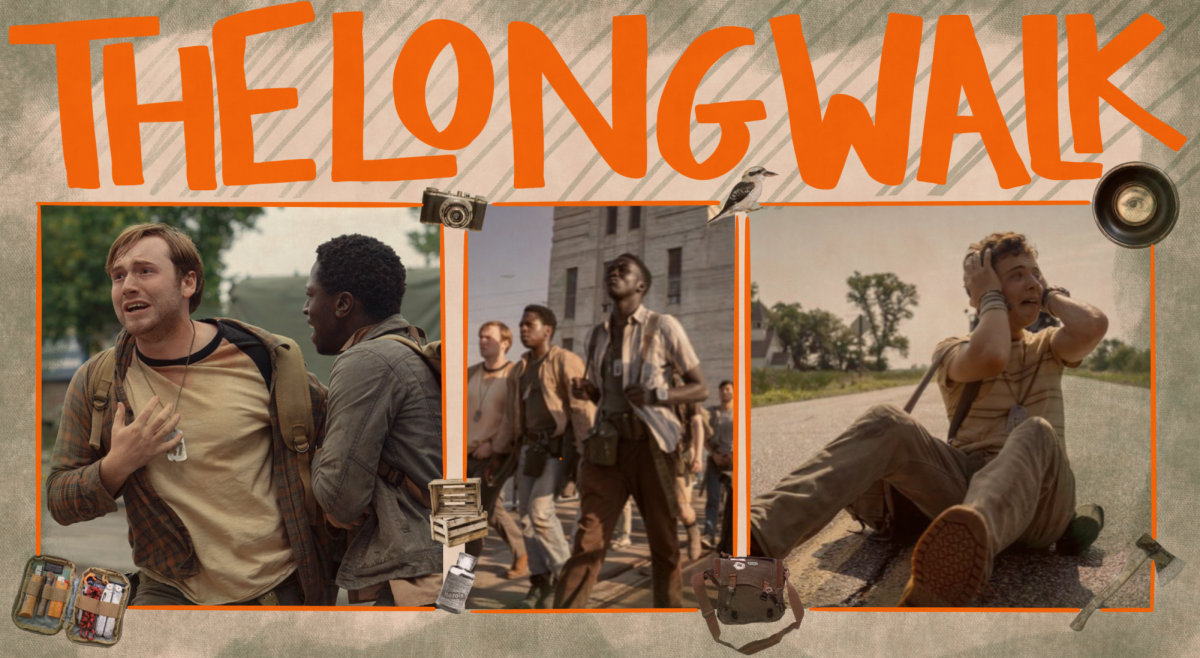
(Jashodhara Jindal / Heights Editor)
★★★★☆
While Stephen King’s name is synonymous with horror, his newest book adaptation, The Long Walk, is not quite a horror movie in the traditional sense.
There is no maniac axe killer, no boogie man, and no fifth-dimensional clown trying to terrorize a group of teenagers. No, in this film, the protagonists are subjected to a much scarier, much more real horror, making it that much more captivating.
To any sucker for films set in alternate histories, this movie does it right. The film is set in a universe where, after an unnamed war, the United States has entered a period of economic instability. To promote work ethic and grit among the youth, one person from each state is randomly selected to participate in “the long walk,” where each participant must keep walking or be executed on live television.
The movie utilizes relatable characters and a grounded reality to set the audience in a world that is not so far from the current climate.
The film’s premise creates an authoritarian image of the United States, where the government will do anything to instill its ideas in the youth. It is disguised as a work ethic, but in reality, what the government is attempting to spread is fear.
The Long Walk follows Ray, a young man participating in the walk. While the overall ambiance of the movie is morose and dark, Ray makes friends along the way, resulting in many candid and funny moments between the group of guys. The deep bond between the characters, however, makes their inevitable deaths sadder.
Ray and his closest companion, Peter, have differing views on the world they inhabit. Ray takes a pessimistic view of the nation, where the Constitution is disregarded as books and ideas are banned. Peter, on the other hand, sees the beauty in the world, oftentimes remarking on nature or explaining growth and forgiveness to Ray.
The Long Walk tells us we need to take action against the oppression of ideas, something that is scarily similar to the modern day—though to a lesser extent. Additionally, the movie’s premise would seem to create an atmosphere of every man for himself, but the characters and their friendship rebel against that idea.
The film is meant to break down the artificial barriers between parties with differing ideals. Each character represents a party with its own ideology, and the film uses their companionship to emphasize the importance of such action in times of distress.
It is essential not to spend our time quarreling with one another over smaller, differing ideals, but instead to focus on the larger problems at hand and work together to address them. While King’s name usually accompanies stereotypical horror, The Long Walk forces the audience to turn a mirror on itself, making for a deeply reflective and thematic experience worth watching.